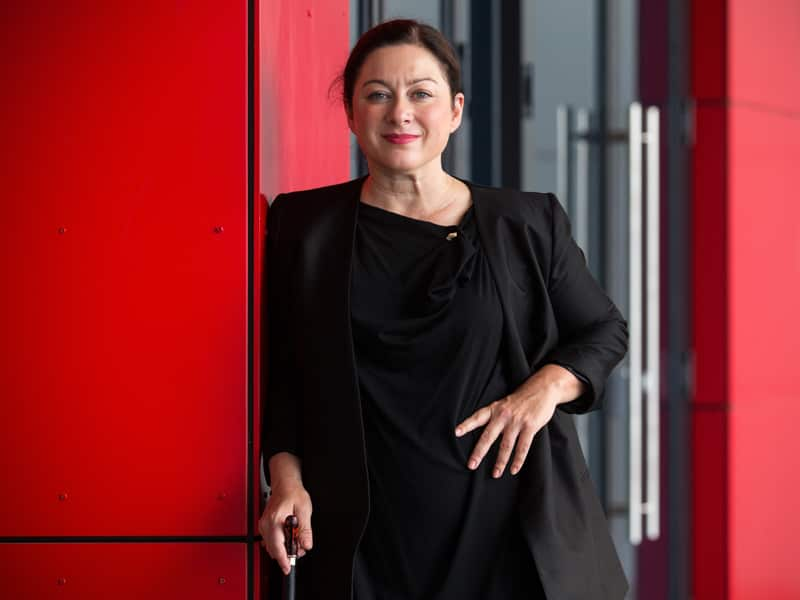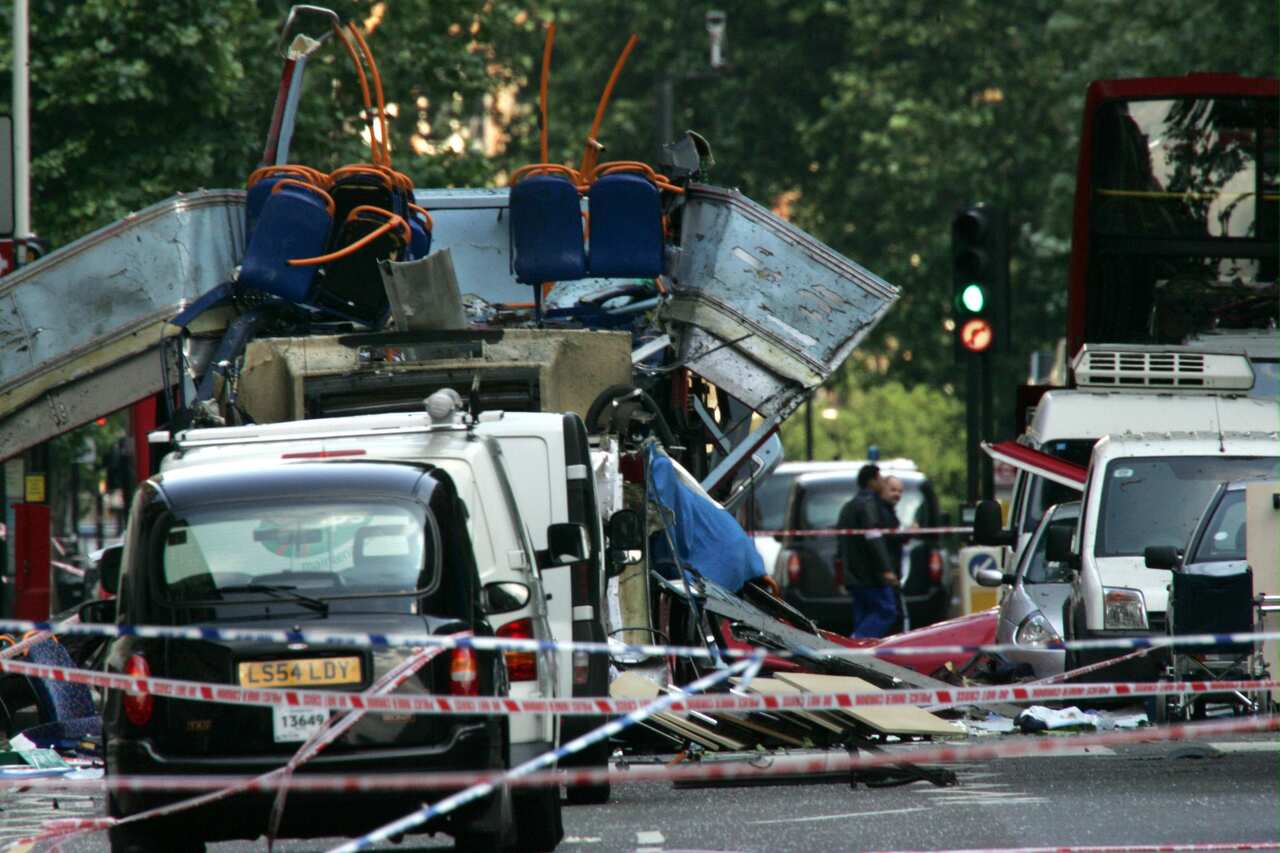Gill Hicks has a strangely intimate relationship with the 19-year-old suicide bomber who took her legs and killed 27 others on the London underground in July 2005.
“He didn't once ask me my opinion but presumed a whole lot of things about me in order to push that button,” Gill Hicks tells me.
On a Thursday morning in July 2005 she boarded the London Underground at the same stop as her suicide bomber. She remembers passengers calling out their names after the blast.
“I’m Richard, and I’m still alive.”
Ms Hicks now has two prosthetic legs. I asked her if she was still in pain. “Richter-scale” she says.
Yet despite all this, I'm not sure I've met anyone with more compassion and empathy. The real enemy, she says, is division. “I'm the product of division. I'm the product of somebody putting a label on me and calling me the enemy,” she says.
“I'm the product of division. I'm the product of somebody putting a label on me and calling me the enemy,” she says.

Bombings survivor Gill Hicks says her identity didn't matter to her rescuers. Source: AAP
“I'm deeply upset that I've been put into a bracket, but what he's taught me is a very valuable lesson…We can't presume anything about anyone we don't know.”
Since the incident, Ms Hicks has been determined to speak out against division. She was at the Sydney Opera House on Wednesday appearing as the final talk at TEDx Sydney. She drew a sustained standing ovation.
Repeatedly through our conversation, Ms Hicks prefaces answers with “I don’t want to generalise” and “I can only speak for myself.” She’s wary of painting an identity or sticking a label on someone in the way she feels the bomber did to her.
But it was also a label that showed her the best of humanity, Ms Hicks says.
“One unknown estimated female” read the ID tag placed on her in hospital.
For her rescuers, arriving an hour after the blast, it didn’t matter who she was or what identity she had – she was a life that had value, a life to be saved.
“People risked their own life to save my life. And that to me really is humanity. That's really who we are,” she says, speaking of the first responders who pulled her and others from the wreckage.
It’s that sense of togetherness and common purpose that must replace divisiveness and de-humanisation if we’re to see an end to violent extremism, she says. Ms Hicks doesn’t presume to understand what motivates extremists but she says she can empathise. Empathy is a consistent theme in our conversation.
Ms Hicks doesn’t presume to understand what motivates extremists but she says she can empathise. Empathy is a consistent theme in our conversation.

The wreckage of a double-decker bus with its top blown off at Tavistock Square in central London July 7, 2005. Source: AP
"One of the definite allures is this sense of purpose” she says. “I think we all have that. So I can identify with that burning idea of, 'With what do I do with my life? How do I serve my life?'"
She says now that she has a disability, she understands even more what its like to be the "other". People don’t always facilitate accessibility. Some see her as an inconvenience.
I asked her about Donald Trump, and about the increasing popularity of the far right in Europe. She says divisive rhetoric is never helpful.
Again reluctant to speak on behalf of others, she says she can only speculate that fear is a motivator. Fear of refugees. Fear of change.
“Will my community change? Will I lose my job? All of these questions come back to sense of self,” she says.
“Empathy has to be at the core of our thinking... Imagine if it was us that was lifting in a horrific, war-torn situation. What would we do?”
Empathy in every direction, she says, is key to stopping division and reducing violent extremism. That’s what she says she learned from the teenage suicide bomber.
"I don't want anyone to know what I know. The senselessness of me not having legs, the senselessness of the precious lives that were taken on July the 7th and that have been taken since and before that date – and for what? What is the outcome?"
That, perhaps, is a question for the 19-year-old who stepped on to a carriage with her one London Thursday morning.
Share

